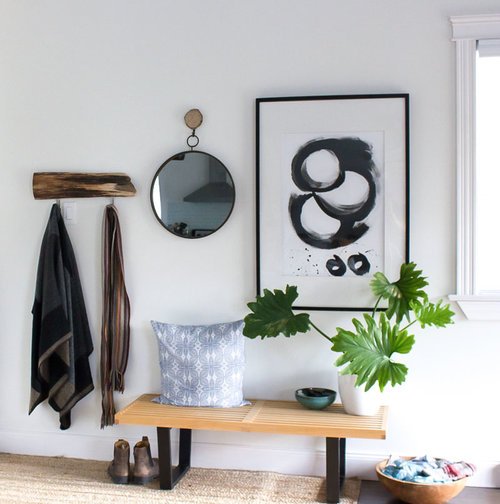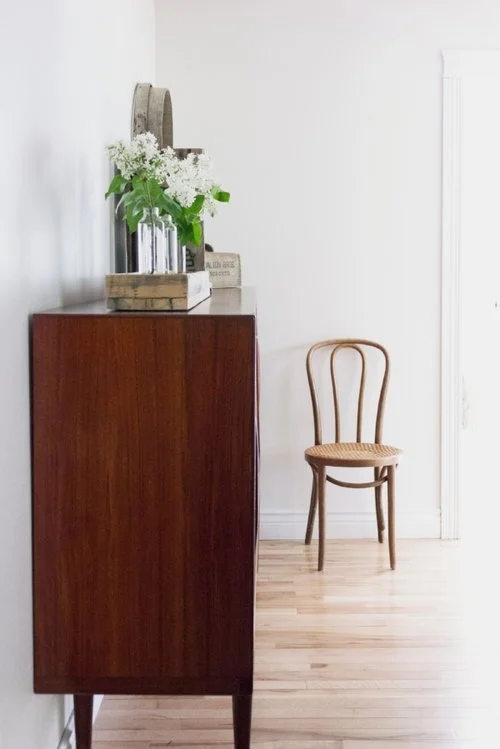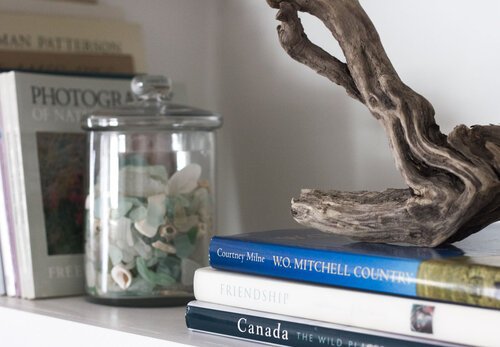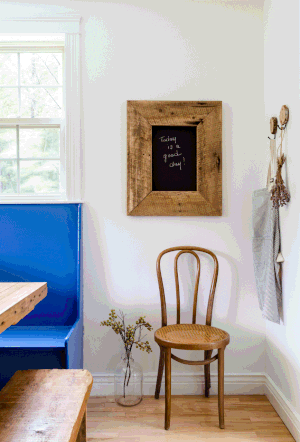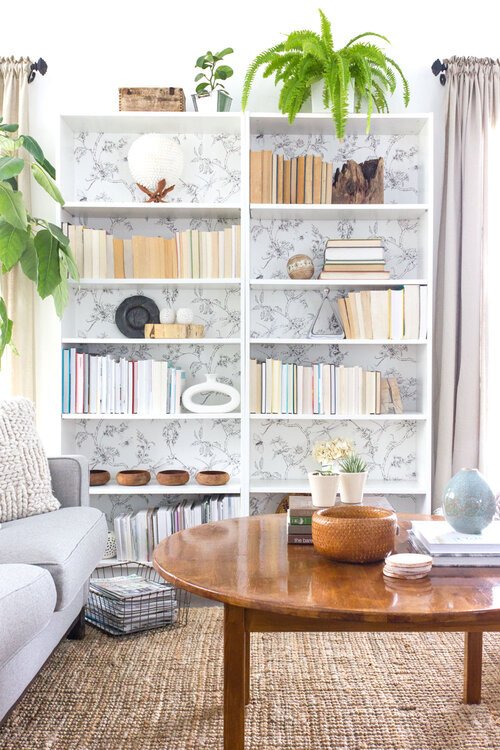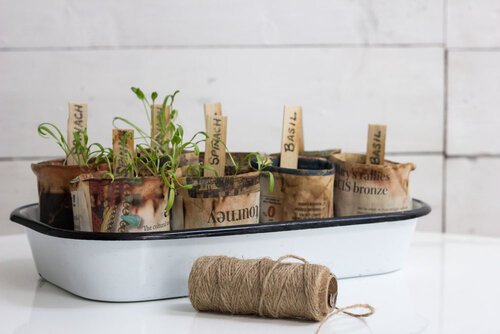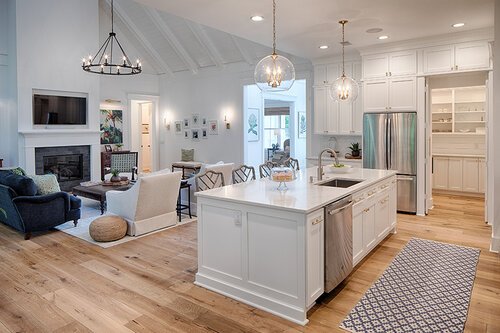How to set up your bedroom for better sleep
Even though we now hear a lot about how important sleep is to our overall health and wellbeing, many people still have trouble settling down and snoozing soundly for a full eight hours. I'm fortunate that I'm not one of them, but I have family and friends that struggle with this problem so I know how real and frustrating it can be.
There are lots of helpful recommendations out there on how to get more sleep, such as practicing meditation, doing breathwork, drinking chamomile tea, cutting out screens in the evening, and taking a bath before bed. Yet, the most obvious thing- our environment - is sometimes overlooked.
Setting up your bedroom for optimal relaxation, a feeling of safety and security, and serenity is key if you're having trouble getting to - or staying - asleep!
Below I’ve laid out 10 things you shouldn’t have in your bedroom, and how to design it so it’s more soothing can calming.
10 MISTAKES IN YOUR BEDROOM DESIGN THAT MAY COST YOU SLEEP:
1. Having a TV/computer/phone/work in the bedroom.
This is a biggie, and yet many bedrooms still have TV's in them. A bedroom is for sleeping and romance. Anything else interferes both physically and mentally. If you read books on a tablet, do so outside the bedroom, and shut it down at least an hour before sleep. Keep your charger somewhere else in the house, and keep your phone on it. If you must have your phone in your room as an alarm or to use a sleep app, make sure to set it on sleep mode so you won't be disturbed through the night except for an emergency. And face it down so it doesn't light up the room when a message pops up.
2. Letting light in.
Darkness is vital for regulating circadian rhythm and sleep patterns, and the presence of even a small amount of blue light in the bedroom can reduce melatonin levels and disrupt sleep. Don't keep an alarm clock that shines bright - choose one where you can turn the light setting off, or keep it outside of the room. Put tape over small lights such as on the smoke detector. And make sure your blinds or drapes are room-darkening and don't let streetlight or moonlight shine in through any cracks. If you have a child that wants a nightlight but has trouble sleeping, try getting them to move it farther and farther away until it's out of the room.
3. Letting noise disrupt you.
It's not so much sound itself that prevents sleep, it's the inconsistency of sound or silence that can be disruptive. And so if you have trouble staying asleep you need to work at keeping noise at a constant level. Keep your door closed or sleep with earplugs if you've got a snoring mate. If you can't do that, or if there is noise beyond your control outside, use a sleep app or machine to play soothing nature sounds at a constant level all night. Try the Sleep Genius App or the Calm Meditation app with just the sound of nature on play.
4. Not bothering to make your bed comfy and welcoming.
A good bed, or at the very least good linens, blankets, and pillows are a must for good sleep. Invest in a really good mattress if you can. Even better, make it organic for better air quality and health. And take the time to find a pillow that's just right for you - choose one from natural fibres such as wool, down, 100% organic cotton or buckwheat. Same goes for sheets and blankets - cotton, linen, hemp and bamboo are healthy and comfy choices. Then make your bed daily - check out this post on how to do that simply but beautifully. Make your bed comforting, a place that beckons and feels good on your skin and welcoming to your eyes, and you'll end up having the problem of not wanting to get up instead of not going to sleep.
5. Not using weighted blankets.
A study published in Occupational Therapy (2008) showed that weighted blankets helped with anxiety and sleep, and another in Australasian Psychiatry (2012) confirmed it. According to Temple Grandin, Ph.D., deep pressure touch stimulation is a type of therapy that almost anyone can benefit from. Similar to getting a massage, the pressure exerted over the body from a heavy blanket or pile of blankets has physical and psychological advantages. It seems to positively affect the nervous system, almost like you are getting a big hug. A feeling of safety kicks in and lets your body relax. While you could purchase a special weighted blanket, it would be easy to mimic the effect by simply piling on a number of heavy quilts and blankets.
6. Not setting the temperature low enough.
Especially when you've got that pile of blankets on you, setting the temperature in your room lower is a must. Research has shown that the optimal temperature for sleeping is 60-67 degrees Fahrenheit, or 15-20 degrees Celcius. When you sleep your body temperature goes down and then starts to warm up towards the end of your sleep as a signal to wake up. So if you sleep in a cooler room you'll be less likely to wake up during the night. However, sleeping at a temperature that is too low isn’t great for you either. If your room is too cold or you don’t have enough blankets, your body might try to lock in heat by shivering and narrowing the blood vessels in your skin. Not great either.
Everyone's sleeping temperature is different, so you'll need to find exactly what's right for you. Wear socks if your feet get cold. Sleep with blankets on your side only if your mate gets too hot. Open a window if possible. Use a fan or air conditioner when needed. And don't use memory foam, as it traps in heat.
7. Not cleaning the air.
Air quality directly affects sleep. The Harvard School of Public Health found that poor indoor air quality increased the risk of sleep disorders, including sleep apnea. And the air in our homes is up to 70 times more polluted than outdoor air.
So open up your bedroom windows - and keep them open at night if it’s safe/optimal to do so. Get a Himalayan Salt Lamp and turn it on through the evening to clean the air before you sleep. Make sure your sheets are cleaned often. And put plants in your room - they purify the air while you sleep, and have a calming effect by connecting us to the natural world. The best plants for the bedroom? Lavender, jasmine, aloe vera, spider plant, and peace lily.
8. Not using scent.
Lavender is known to decrease heart rate and lower blood pressure, therefore inducing a more relaxed state. Jasmine, vanilla, and sandalwood are also good for relaxation and sleep. Use one of these scents in a diffuser in the room (one without light) or make sachets scented with these essential oils and have them around the room. Natural soy or beeswax candles scented with these essential oils also work well, but be careful to put them out before getting sleepy.
9. Not designing an oasis.
Your bedroom is your sanctuary - it should make you feel relaxed and peaceful the moment you step in it. Taking care of your sleep environment and putting thought into its look and feel is important and could help you welcome more restful nights.
Start by de-cluttering and removing anything that doesn't belong or that causes stress (ie. piles of work or school papers!)
Arrange your furniture in a way that feels natural and visually pleasing to you, not how a Pinterest board says it should look. If you don't feel right with your bed in a certain spot, change it. Feng shui says not to position your bed in front of a window, or facing a large mirror, as both can be disrupting.
Choose a wall color that elicits calm - like a soothing off-white, blue or green.
Put artwork on the wall that soothes you.
Make sure that you have curtains on your windows, even if you live in the woods, since your room should feel like a cave - cool, dark, quiet, and safe. Having a curtain over a window feels more secure and could reduce feelings of anxiety.
Finally, find a bedside table that can hold the things that will help you relax, such as a lamp, journal, and pen so you can jot down everything on your mind that you are worried about and not let it keep you up at night.
10. Not putting yourself first.
Sleep is essential to our health and to functioning all day doing the many things on our list, including taking care of others. So when it comes to getting your rest, you must put yourself first. If the dog or cat sleeps on your bed and wakes you up constantly, put them out. Just do it. Kids, ditto. Same for your mate if you can't find a way to deal with snoring or tossing and turning. Put your own health first so that you can do better by your loved ones during waking hours.
More than just knowing the importance of sleep, we have to create a good sleep environment and optimize the factors that lead to good sleep. Take the time to assess and refresh your bedroom for better sleep. And have sweet dreams.



